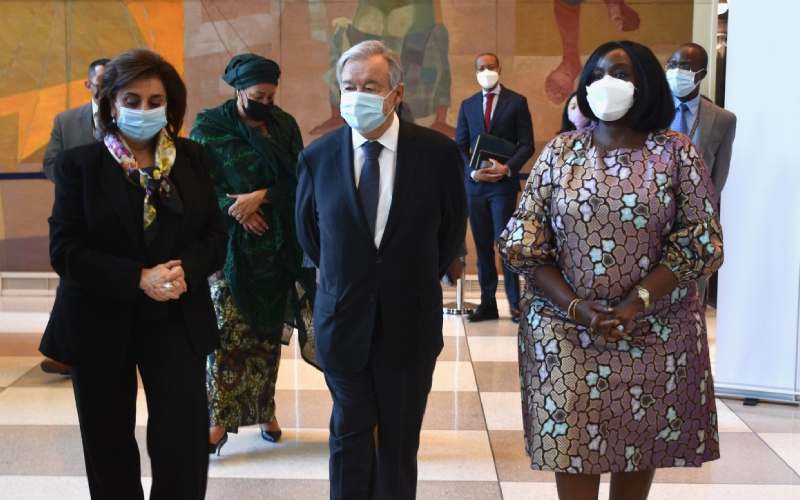×
The Standard e-Paper
Home To Bold Columnists

CS Amb Raychelle Omamo (right) with UN Secretary-General Antonio Guterres (C) walk through the Photoville Exhibition, New York. [Twitter/CS Omamo]
The role of women at the local level and at the heart of conflict zones remains overlooked and underrated, Kenya has told the United Nation’s Security Council.